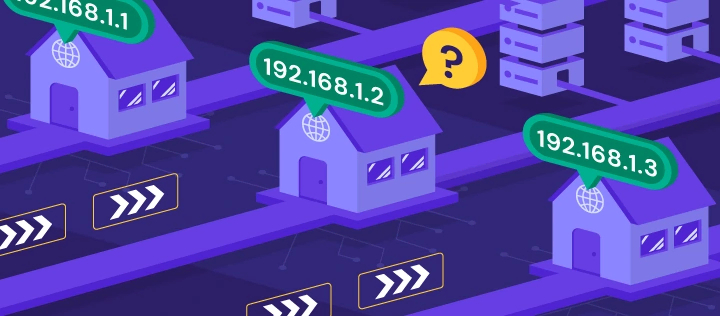Choosing Between Dynamic IP and Static IP: What You Need to Know

When setting up an internet connection, whether for personal use or a business network, one critical decision you’ll face is choosing between a dynamic IP address and a static IP address. This choice can significantly impact your network’s accessibility, security, and overall functionality. This article will delve into the nuances of IP addresses, how they work, and guide you on making an informed decision based on your needs.
What Is IP and How It Works
When setting up an internet connection, whether for personal use or a business network, one critical decision you’ll face is choosing between a dynamic IP address and a static IP address. This choice can significantly impact your network’s accessibility, security, and overall functionality. This article will delve into the nuances of IP addresses, how they work, and guide you on making an informed decision based on your needs.
What Is IP and How It Works
An IP (Internet Protocol) address is a unique identifier assigned to each device connected to a network, allowing them to communicate with each other. It’s like a postal address, but for the internet, ensuring data sent from one device reaches its intended destination correctly.
IP addresses are crucial for the seamless operation of the internet. They are divided into two main types: IPv4, with a numerical format (e.g., 192.168.1.1), and IPv6, designed to offer a much larger address pool with an alphanumeric format. Each IP address is assigned by the Internet Assigned Numbers Authority (IANA) and managed by local registries.
What Your IP Depends On
The type of IP address you have can depend on several factors, including your internet service provider (ISP), the nature of your internet connection, and your specific needs for internet usage.
ISP Policies: ISPs generally assign dynamic IP addresses to residential customers due to the limited number of IPv4 addresses available. This method allows for the efficient reuse of addresses as users connect and disconnect from the network.
Connection Type:Business customers, on the other hand, might receive static IP addresses due to their requirements for hosting servers, remote access capabilities, and running web-facing applications.
User Needs: The choice between a static or dynamic IP also depends on the user’s specific needs, such as the necessity for reliable remote access, running a server, or simply browsing the internet.
The Main Difference Between Them
Dynamic IP Address: A dynamic IP address changes every time a device connects to the internet. It’s assigned from a pool of available addresses by the DHCP (Dynamic Host Configuration Protocol) server, making it a cost-effective and flexible solution for most internet users.
Static IP Address: Unlike dynamic IPs, a static IP address remains the same over time. It is manually assigned and ideal for hosting servers, remote access, and other services where a constant address is necessary.
The main differences lie in permanence, cost, and management. Dynamic IPs are easier and cheaper to manage for ISPs, while static IPs provide consistency needed for specific applications but at a higher cost and management effort.

Is It Possible to Change the Type Yourself If Necessary
Changing from a dynamic IP address to a static one (or vice versa) is possible but depends on your ISP’s policies and the services they offer. Most ISPs allow customers to request a static IP address for an additional fee.
For users who need a temporary solution to achieve a static-like IP address, services like Dynamic DNS (DDNS) can provide a stable hostname that automatically updates with your changing IP address, simulating the effect of a static IP for remote access and other applications.
The Resulting Conclusion About the Need
Choosing between a dynamic and static IP address boils down to your specific internet usage needs. For most residential users and small businesses, a dynamic IP address offers a sufficient and cost-effective solution. However, for businesses requiring reliable remote access, hosting services, or running critical online applications, a static IP address is indispensable.
Ultimately, the decision should align with your operational requirements, security considerations, and budget constraints. Consulting with your ISP and a network specialist can help you make the best choice for your situation, ensuring your network is both efficient and secure.
